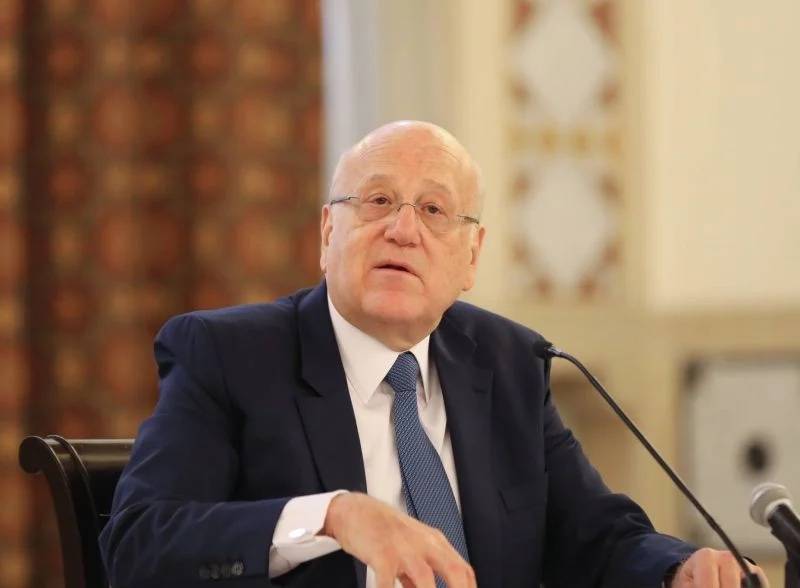
Prime Minister Najib Mikati during a press conference in Beirut on Dec. 28. (Credit: Dalati and Nohra)
BEIRUT — Prime minister Najib Mikati said in a statement late Monday that comments made by Hezbollah chief Hassan Nasrallah about Saudi Arabia earlier in the evening “do not represent the Lebanese government and the majority of the Lebanese and it is not in Lebanon’s interest to abuse any Arab country and Gulf countries in particular.” Mikati’s statement comes as a diplomatic rift between Lebanon and the Gulf monarchies persists.
Here’s what we know:
• During a speech to mark the second anniversary of the assassination of Qassem Soleimani, the commander of the elite Quds force in Iran’s Islamic Revolutionary Guard Corps, Nasrallah on Monday lashed out at Saudi Arabia’s criticism of his party as a terrorist organization operating within the Lebanese state. Nasrallah turned the term back on the Saudis, contending that “the terrorist is the one who keeps hundreds of thousands of Lebanese hostages and threatens Lebanon through them,” in reference to the presence of hundreds of thousands of Lebanese working in Gulf countries that Saudi Arabia and its Gulf allies could expel.
• Reacting to Nasrallah’s remarks, Mikati accused Hezbollah’s leadership of opposing the Lebanese national interest by taking stances which “firstly damage Lebanese people and secondly [damage] Lebanon’s relationship with its brotherhood countries.”
• “Come on, spare Lebanon and the Lebanese the ugly sectarian and political tensions,” the prime minister pleaded in his statement.
• Nasrallah is typically critical of the kingdom in his speeches; however, his comments don’t usually draw a response from Mikati.
• Comments aired in late October by then-Information Minister George Kurdahi about the Saudi role in the war in Yemen ignited a diplomatic crisis between Lebanon and the kingdom, with the latter banning all Lebanese imports and severing diplomatic ties with Lebanon. Several other Gulf monarchies followed suit and recalled their envoys from Beirut. Although Kurdahi resigned from his position on Dec. 3, ties have not been restored between the two countries and the import ban remains in place.
• Mikati has repeatedly expressed his eagerness to heal the rift with the kingdom, but despite intervention by French President Emmanuel Macron in the matter, no tangible progress has been made in this regard.